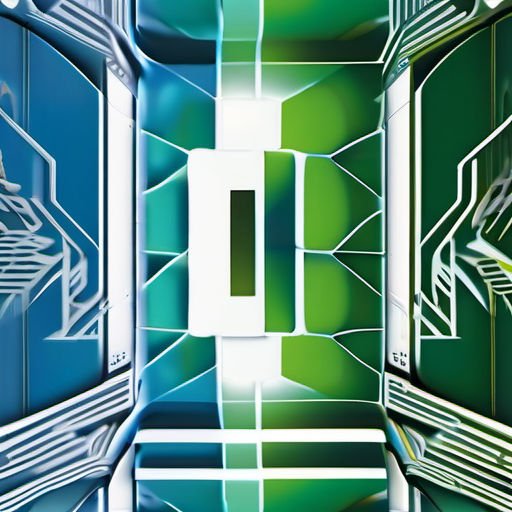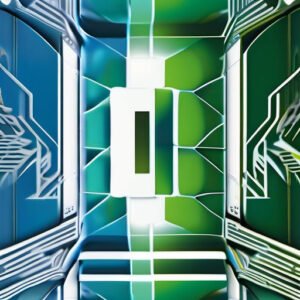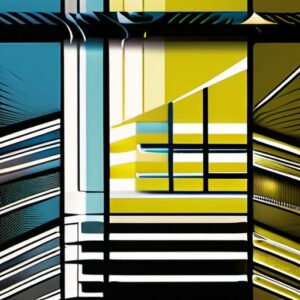How 60s Sci-Fi Questioned Reality Long Before The Matrix
Diving into Alphaville’s Sci-Fi Reality
Alphaville, directed by Jean-Luc Godard in 1965, is a striking example of how cinema can redefine the sci-fi reality genre. Unlike the blockbuster spectacles that often dominate science fiction, Alphaville blends dystopian themes with film noir aesthetics, creating a cerebral and philosophical narrative that challenges viewers to rethink the boundaries between humanity and technology. This film doesn’t just transport us to a futuristic city; it invites a provocative meditation on logic, emotion, and control within a hyper-rational world. If you’re intrigued by sci-fi reality that melds intellectual depth with stylistic innovation, Alphaville remains a quintessential experience.
The Genesis of Alphaville’s Unique Sci-Fi Reality
Alphaville was produced during a period when science fiction cinema was mostly centered on space epics or monster-driven plots. Godard’s work, by contrast, crafts a world that feels eerily plausible rather than fantastical.
A Fusion of Genres
– Alphaville stands out as a hybrid of science fiction and film noir.
– It uses black-and-white cinematography to evoke the moody atmosphere typical of detective thrillers.
– The protagonist, Lemmy Caution, is a hard-boiled secret agent navigating a city ruled by cold logic.
This fusion creates a sci-fi reality that feels less like an escape and more like a critique of modernity’s mechanistic tendencies.
Philosophical Foundations Behind the Sci-Fi Reality
Godard integrates existential philosophy and critiques of technocracy throughout Alphaville. The city is governed by Alpha 60, a sentient supercomputer that suppresses emotions and enforces absolute rationality. This embodiment of logic challenges humanity’s essence:
– The eradication of poetry and love speaks to fears that unchecked technology could stifle creativity.
– The film echoes 20th-century philosophical debates on reason and emotion, drawing from thinkers like Kierkegaard and Nietzsche.
– Alphaville’s sci-fi reality is a metaphor for societal conformity and the dangers of losing individuality to cold institutional control.
Visual and Narrative Elements That Define Alphaville’s Sci-Fi Reality
Godard’s use of visual style and storytelling techniques heightens the film’s unsettling depiction of reality, distinguishing it within the philosophical sci-fi arena.
Set Design and Cinematography
– Alphaville was filmed largely on location in contemporary Paris, with superheroic use of real urban spaces cast as a dystopian metropolis.
– The sterile, bureaucratic interior spaces contrast sharply with the city’s shadowy streets, reinforcing themes of surveillance and social alienation.
– Use of sparse, futuristic technology props rather than flashy gadgets grounds the sci-fi reality in minimalism and plausibility.
Dialogue and Language as Symbols of Control
– Language in Alphaville is stripped of metaphors and emotional nuance, reflecting Alpha 60’s reign.
– Characters often deliver lines in terse, matter-of-fact tones, underscoring the suppression of creativity.
– This linguistic sterilization is symbolic of broader cultural and psychological constraints imposed by technology.
Characters as Agents Within a Technocratic Sci-Fi Reality
The human and artificial figures in Alphaville embody conflicting ideals about freedom and control, rendering the sci-fi reality deeply personal and political.
Lemmy Caution: The Human Element
– As an outsider and secret agent, Lemmy represents individualism and emotion thrust into a logical dystopia.
– His persistence in using metaphor and humor breaks the oppressive atmosphere.
– Lemmy’s journey symbolizes resistance against dehumanizing systems.
Alpha 60: The Technological Overlord
– Alpha 60 is more than a villain; it’s a chilling anthropomorphization of rationalism’s extremes.
– The supercomputer’s demand for logic serves as a cautionary symbol about unchecked technological progress.
– Alpha 60’s eventual defeat invites reflection on the power of humanity’s emotional and poetic capacities.
Alphaville’s Influence on Sci-Fi Reality and Modern Cinema
Alphaville’s innovative approach to sci-fi reality has inspired filmmakers and theorists, particularly in how science fiction can be a vessel for social and philosophical discourse.
Legacy and Contemporary Resonance
– Films like Terry Gilliam’s Brazil and Ridley Scott’s Blade Runner share Alphaville’s dystopian themes and visual noir style.
– The exploration of artificial intelligence and emotional suppression remains relevant amid current technological debates.
– Alphaville’s blending of genre conventions helped open doors to more intellectually challenging sci-fi films.
Critical Reception and Cultural Impact
– Initially niche in appeal, Alphaville has gained cult status among sci-fi enthusiasts and academics.
– Its innovative use of language, style, and narrative structure is frequently studied in film courses.
– The film’s existential questions about machine logic versus human feeling continue to resonate in an age dominated by digital interfaces.
The Enduring Appeal of Alphaville’s Sci-Fi Reality
Why does Alphaville continue to captivate viewers over half a century later? Its sci-fi reality remains compelling because it challenges assumptions about progress and human essence.
– The film’s intellectual rigor invites repeated viewings and deeper analysis.
– Alphaville’s futuristic vision feels remarkably prescient, anticipating concerns about surveillance states and AI control.
– Unlike many sci-fi works, it emphasizes the poetic and emotional facets of humanity as the ultimate form of rebellion.
Rediscovering Alphaville Today
For modern audiences craving sci-fi with substance, Alphaville offers a rare blend of entertainment and enlightenment:
– It encourages viewers to question how much autonomy technology should have.
– Its artful style makes the philosophical content accessible without feeling didactic.
– Alphaville’s sci-fi reality is a powerful reminder that science fiction can be a mirror reflecting our most profound anxieties and hopes.
Exploring the Sci-Fi Reality Through Alphaville’s Lens: Key Takeaways
Alphaville provides a nuanced exploration of sci-fi reality by intertwining technology, philosophy, and human emotion.
– It uses a dystopian cityscape ruled by logic to question the cost of rationality devoid of empathy.
– Characters personify the struggle between freedom and control within a mechanized society.
– The film’s style and dialogue reinforce themes of alienation and resistance.
– Alphaville’s legacy continues to influence the genre’s intellectual and artistic dimensions.
To dive deeper into Godard’s masterpiece and its impact on sci-fi reality, consider exploring [Criterion Collection’s Alphaville page](https://www.criterion.com/films/162-alphaville) for additional insights and restored versions.
Engaging with Alphaville invites you to ponder: in this age of advancing AI and digital landscapes, how close are we to living in our own Alphaville? Reflect on that, then experience the film—it might just change your perspective on what sci-fi reality truly means.











Post Comment